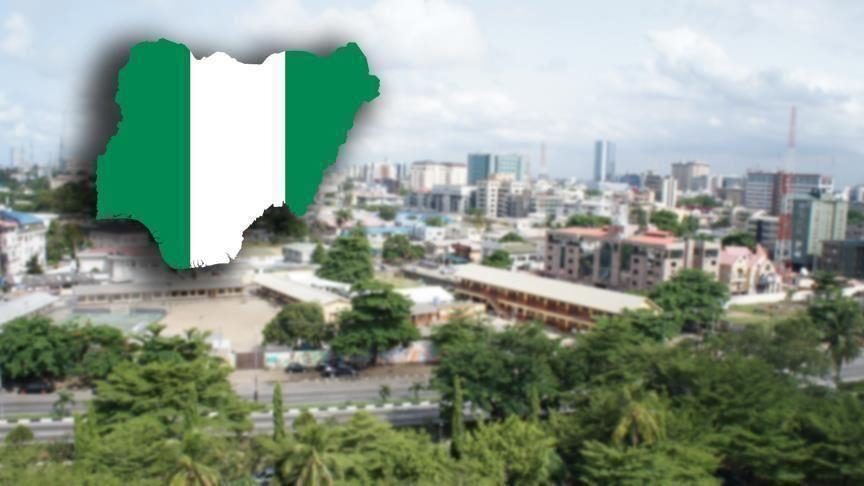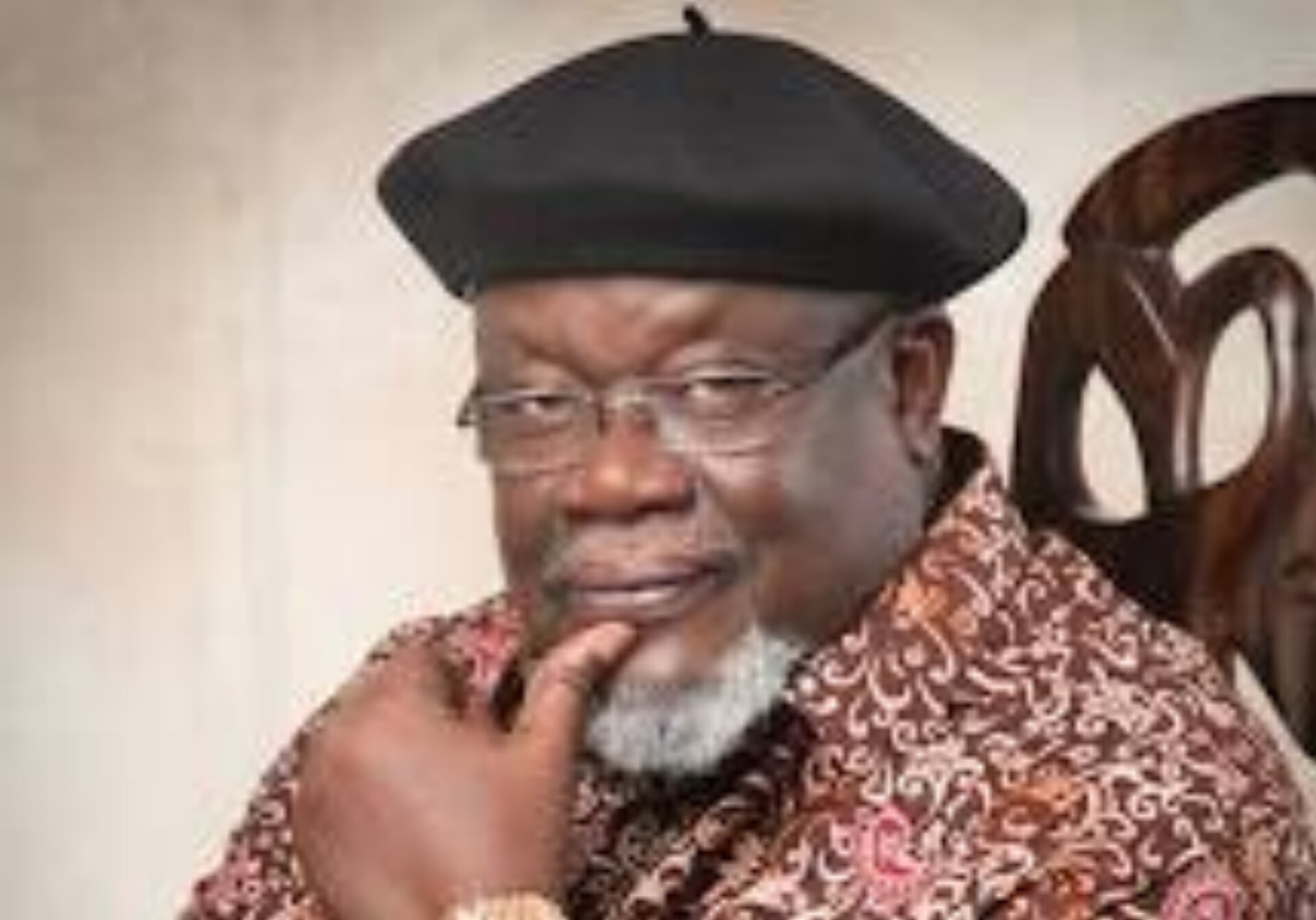By Ehichioya Ezomon
When someone does a good job, they deserve our praise, and our honour. Today, that praise, that honour goes to the Minister of Interior, Mr Olubunmi Tunji-Ojo, for a promise made and a promise kept. He’d pledged on September 7, 2023, that the backlog of applications for 204,000 passports would be cleared in two weeks.
But the minister was “laughed out of court” because Nigerians had heard such promises from different Ministers of Interior and Comptroller-Generals of Nigeria Immigration Service (NIS), and they never delivered on those declarations.
So, Tunji-Ojo making the assurances to clear accumulated passports in two weeks was like a promise made by a drunk under the influence, as usual. But this minister was a different promise-maker, who bandied the name of President Bola Tinubu as wanting the backlog cleared because he (Tinubu) was “embarrassed” by the undue delays in their issuance.
And pronto, the passport officials – lethargic in operations, and notorious in underhand dealings to fleece hapless applicants – swung into action, and in a record time, “the 204,000 passports were cleared.”
Besides former Minister of Aviation under the Muhammadu Buhari government, Mr Hadi Sirika – who’d promised a “brand new runway” for the Nnamdi Azikiwe International Airport in Abuja, and delivered it with 24 hours to spare – Nigerians can’t recall in recent history such a “magician” like Minister Tunji-Ojo.
Not even former Minister of Interior, Ogbeni Rauf Aregbesola (former Governor of Osun State), could solve the endemic delays in passport issuance in his four-year supervision of the ministry, leaving behind the backlog inherited, and now “cleared in a jiffy” by Tunji-Ojo.
The minister gave a “marching order” to the NIS in September, demanding swift clearance of the pending passport applications in two weeks. At a meeting with top government officials, including the Acting Comptroller-General of NIS, Mrs Caroline Adepoju, and the Managing Director of Iris Smart Technologies (that produces passport booklets), Mr Yinka Fisher, the minister said he’s determined to remove “bottlenecks in the acquisition of passports and other immigration documents.”
Describing the task ahead as a national emergency, Tunji-Ojo said: “As far as I am concerned, the issue of passport is a national emergency. I keep getting emails daily from Nigerians complaining. We cannot continue like that.
“It has become an embarrassment to His Excellency, President Bola Ahmed Tinubu. I represent him here as your minister. That embarrassment is mine now. I am not changing my words. I need the backlog cleared in two weeks.”
As a strategy for achieving the goal, the minister “man-marked,” and monitored the process, making the passport officials to give him progress reports every morning until “mission accomplished.”
Even as Tunji-Ojo’s hit the bull’s eye with his first shot at clearing the backlog of passports, he’s promised more actions that’d ease the processing of passports within two weeks, and “the documents would be delivered to the owners at homes, in offices or places of their choice.”
He told visiting Minister of Humanitarian Affairs and Poverty Alleviation, Dr Betta Edu, in his office in Abuja on September 12, that, “Nigerians must not be relegated from being citizens of Nigeria by denying them a passport,” adding that, “We must get it right now… By the time the backlogs are cleared, Nigerians will start enjoying the efficient service of having their passports issued within two weeks upon application.”
Also in an interview on Channels TV, Tunji-Ojo said to fast-track passport issuance, his ministry would enter into a partnership with post offices, financial institutions, and others to serve as enrolment centres, and also work towards reducing the human factor in the passport application process, which “breeds corruption.”
Only a few other ministers have “hit the ground running” after their inauguration. They include Minister of the Federal Capital Territory (FCT), Mr Nyesom Wike; Minister of Works, Senator Dave Umahi; Minister of Humanitarian Affairs and Poverty Alleviation, Dr Betta Edu; Minister of Labour and Employment, Mr Simon Lalong; and Minister of State for Petroleum (Oil), Senator Heineken Lokpobiri.
Most Nigerians will disagree with the tag of “performing Ministers” bestowed on these gentlemen and lady. Yet, their policy statements, actions and body language stand them out from the crowded field of ministers. Samplers:
Mr Wike – nicknamed “Mr Project” as Governor of Rivers State (2015-2023) – was on the streets of Abuja the day after his swearing-in, inspecting projects, and making pronouncements, some with far-reaching ramifications. He said he’d revoke and/or demolish thousands of undeveloped plots, property built on green areas, and property owing ground rents.
Exhibiting his “talk-and-do” trademark, Wike’s test-run his demolition machine with multi-storey structures owned by “very influential Nigerians,” and by last week, the FCT administration had raked in about N2bn from ground rents, with a projection of N5bn to N7bn from that single source of revenue by December 2023.
Senator Umahi – also a “Mr Project” as Governor of Ebonyi State (2015-2023) – made the inspection of the Abuja-Lokoja-Benin highway in a punishing 14-hour vehicular journey – but done partly on foot due to the road’s dilapidation.
From interactions with contractors, stranded commuters and communitypeople living on the highways, Umahi’s plotted how to efficiently and timely fix that road and others in similar shapes nationwide. That’s how a new policy of officially adopting cement and discarding literite for road construction was mooted.
Dr Edu – former Commissioner of Health in Cross River State and Women Leader of the ruling All Progressives Congress (APC) – has shown that President Tinubu didn’t make mistakes in picking her as a female and a youth, and giving her the important ministry of Humanitarian Affairs and Poverty Alleviation to supervise.
She’s been all over the place – disaster and disaster-prone areas – meeting, and sharing in the experiences of the internally-displaced persons (IDPs) in their camps, and preparing and fine-tuning a template for bringing 15m Nigerians into the social safety net of the federal government.
Mr Lalong, an elected Senator, had his work cut out for him, as he’s thrust immediately into the den of angry organised labour unions up-in-arms against the government over President Tinubu’s “subsidy is gone” declaration in his inaugural speech on May 29, 2023, and floating of the Naira that combined to send the economy into a tailspin.
Lalong has only had some respite in the past week from labour’s series of agitation, but there’s potential for further confrontation if the government failed in the next two weeks to wrap up negotiations with the unions led by the Nigeria Labour Congress (NLC) and Trade Union Congress (TUC).
Coming at a time when prices of oil products, mostly for petrol, hit the roof aftermath of President Tinubu’s removal of subsidy, Dr Lokpobiri’s staked his reputation and that of the president on the December 2023 completion of rehabilitation of the Port Harcourt Refinery, and resumption of refining crude thereafter.
Lokpobiri’s paid several visits to the refinery, for progress assessment, and came out each time to restate that the revamping of the plant was going according to plan and schedule, and that the December deadline would be met. Nigerians pray, and hope that the money-guzzling refinery would be back to life as promised by the minister and President Tinubu!
One or two other ministers have proclaimed the directions they want to take their ministries. They include the Minister of Aviation and Aerospace Development, Mr Festus Keyamo (SAN); Minister of Sports Development, Senator John Owan Enoh; Minister of Marine and Blue Economy, Chief Adegboyega Oyetola (former Governor of Osun State); Minister of Industry, Trade and Investment, Dr Doris Uzoka-Anite; Minister of Communications, Innovation and Digital Economy, Dr Bosun Tijani; Minister of Solid Minerals Development, Mr Dele Alake; and Minister of Defence, Mr Mohammed Badaru Abubakar (former Governor of Jigawa State).
But most of the ministers appear to be sleeping on duty, or at home. It took quite awhile for them to resume duty from organising and/or attending parties to celebrate their appointments. Thus, many Nigerians are unsure if these appointtees had visited their ministries to introduce themselves to, and familiarise with the staff and workings of the ministries.
Particularly concerning are the following: Chief Adebayo Adelabu, who handles the crucial Ministry of Power – the most critical driver of the economy after petrol and foreign exchange; the Minister of Information and National Orientation, Mr Mohammed Idris – supposedly the spokesperson for the government; Minister of Education, Prof. Tahir Mamman; Coordinating Minister of Health and Social Welfare, Prof. Ali Pate; and Minister of Agriculture and Food Security, Abubakar Kyari.
One thread, though, runs through the pronouncements and actions of the “stand-out ministers,” and that’s to invoke President Tinubu’s name to drive the process. Often, you hear the ministers say: “That’s what the President wants,” “That’s the instruction of Mr President,” “The President said I should carry out this plan,” “Mr President wants quick results.”
The ministers aren’t coy deploying the President’s name, so long as it yields the necessary results – and it seems to be doing the “magic” afterall! So, the “slumbering” ministers should wake up, adopt a similar strategy, and add value to the lives of Nigerians, who hurt from government’s twin economic policies of subsidy removal and floating of the Naira!
To succeed in his ambitious “Renewed Hope” agenda, President Tinubu needs to encourage the likes of Mr Tunji-Ojo to implement government’s policies and programmes, and execute and timeously deliver on projects and services to meet the people’s needs.
Mr Ezomon, Journalist and Media Consultant, writes from Lagos, Nigeria





